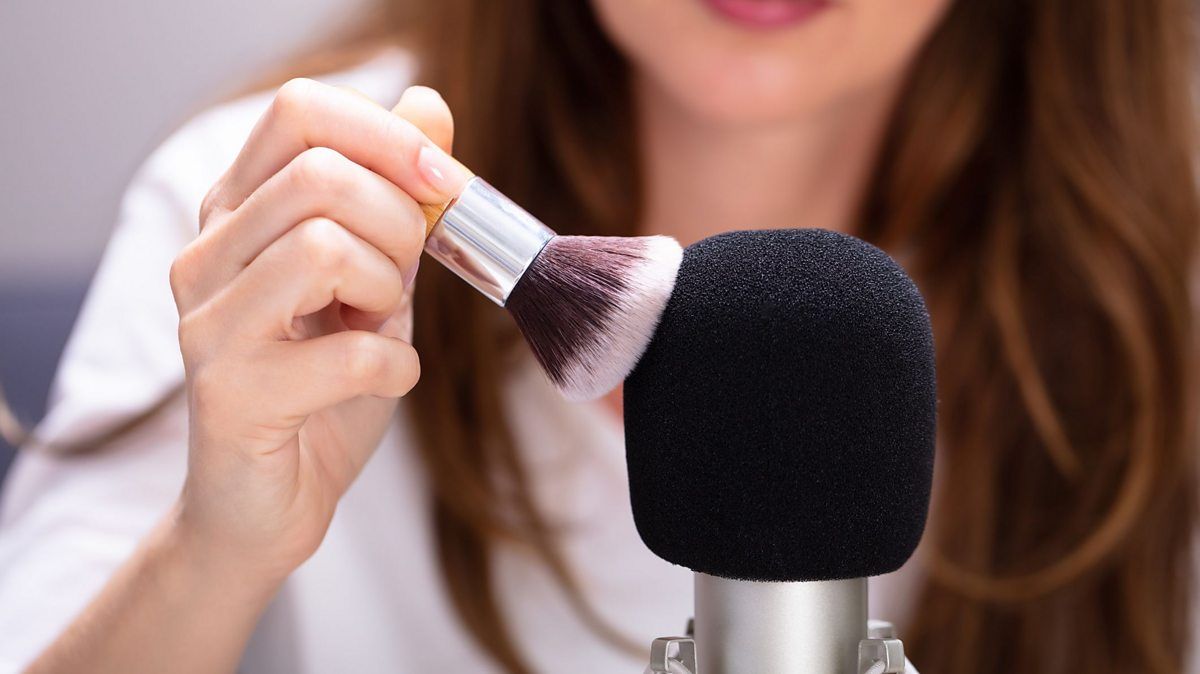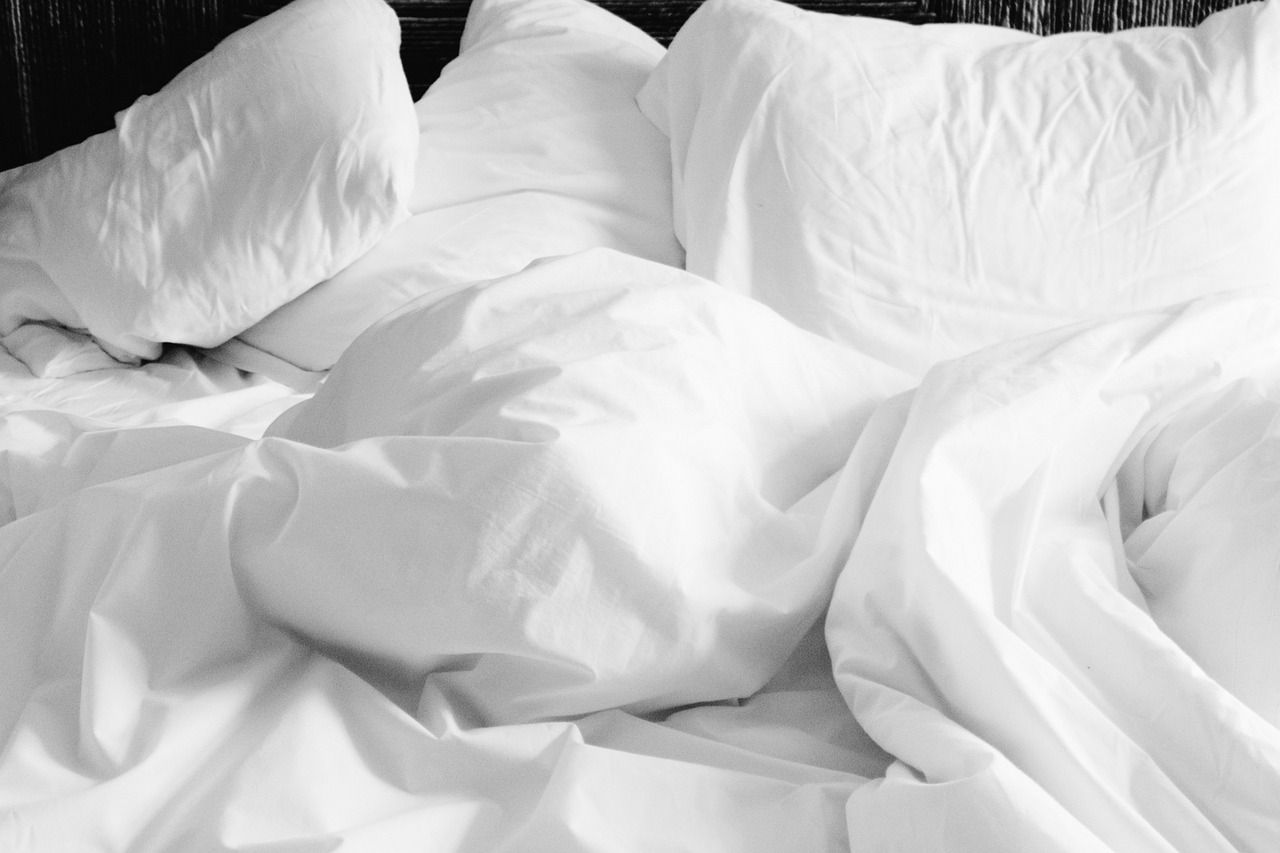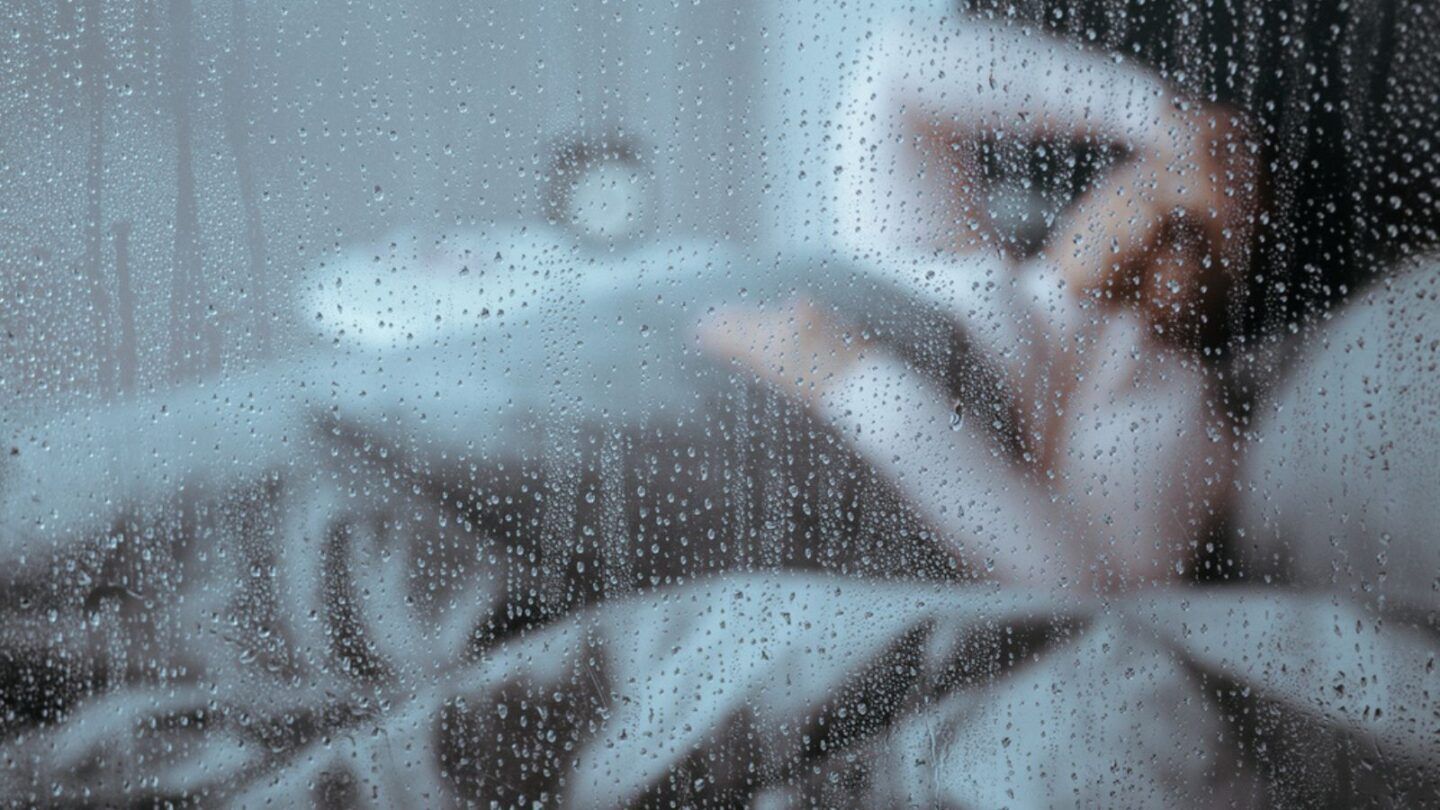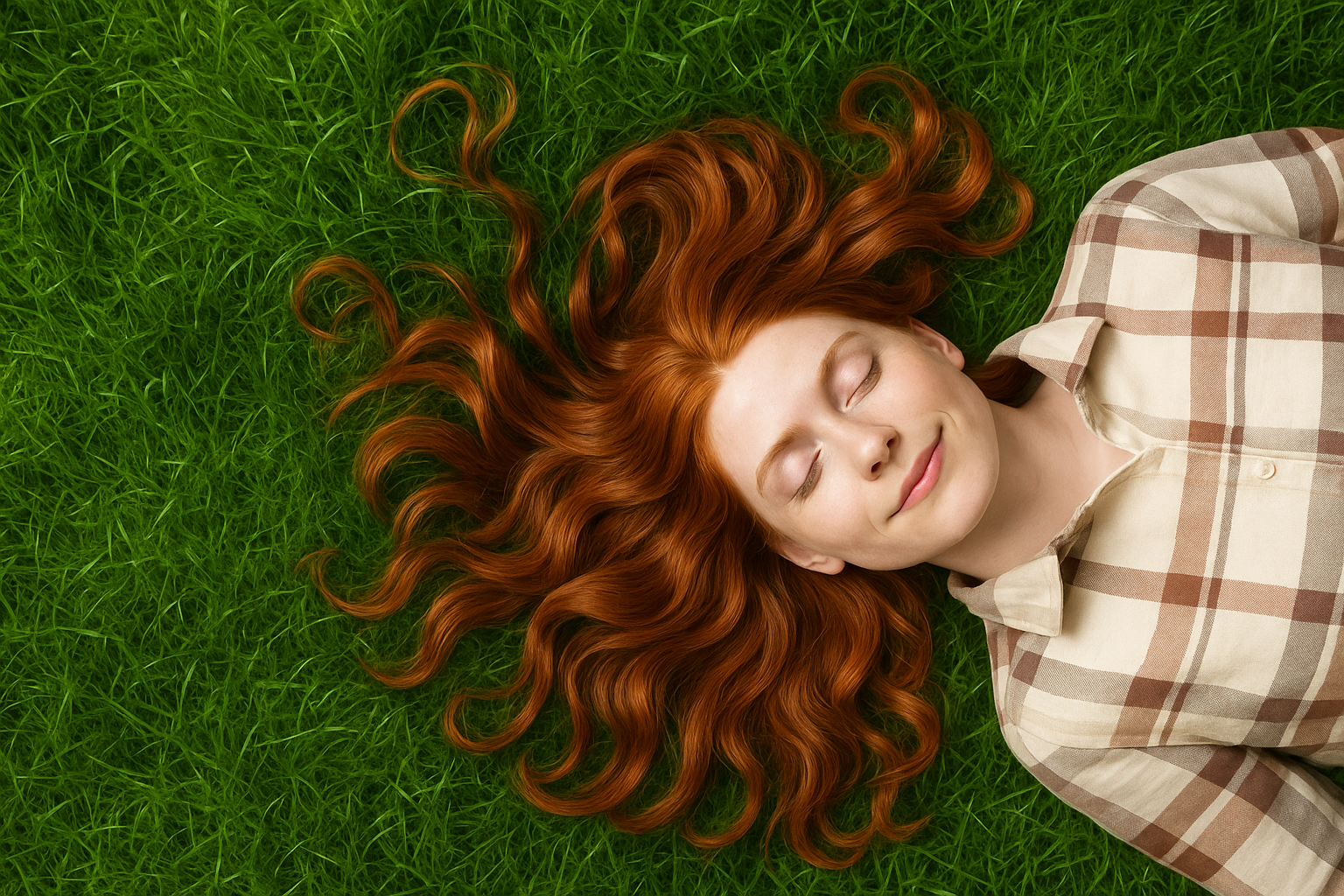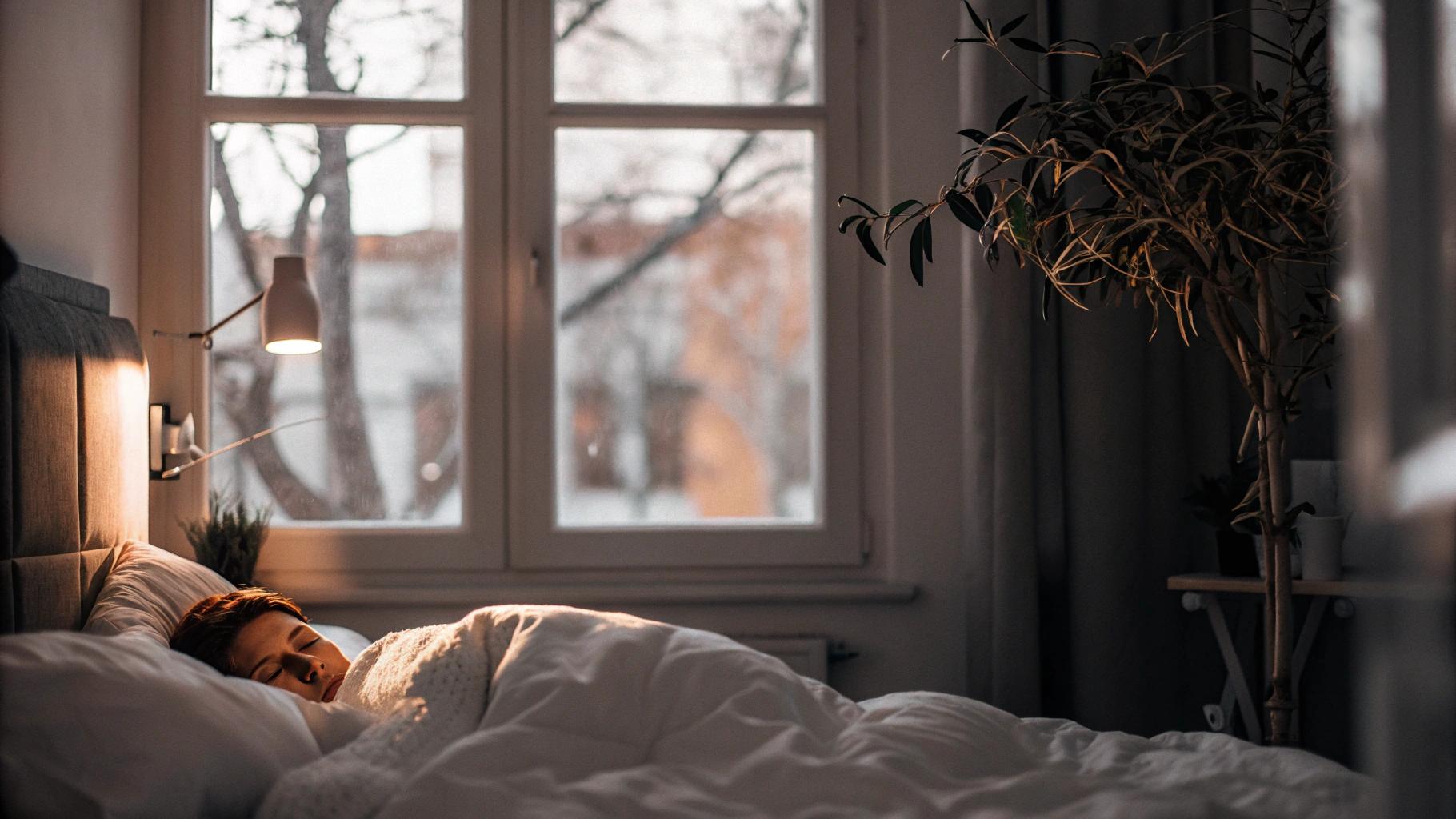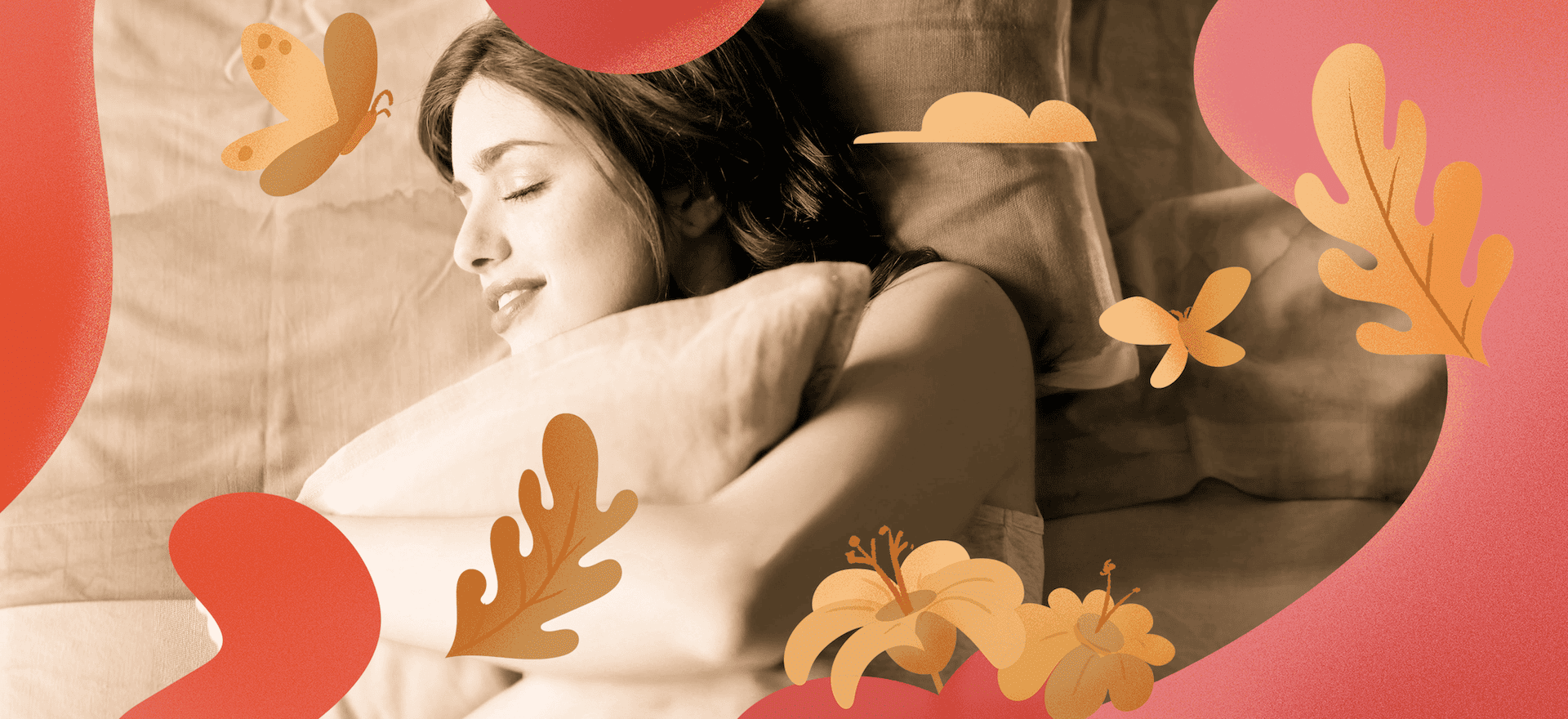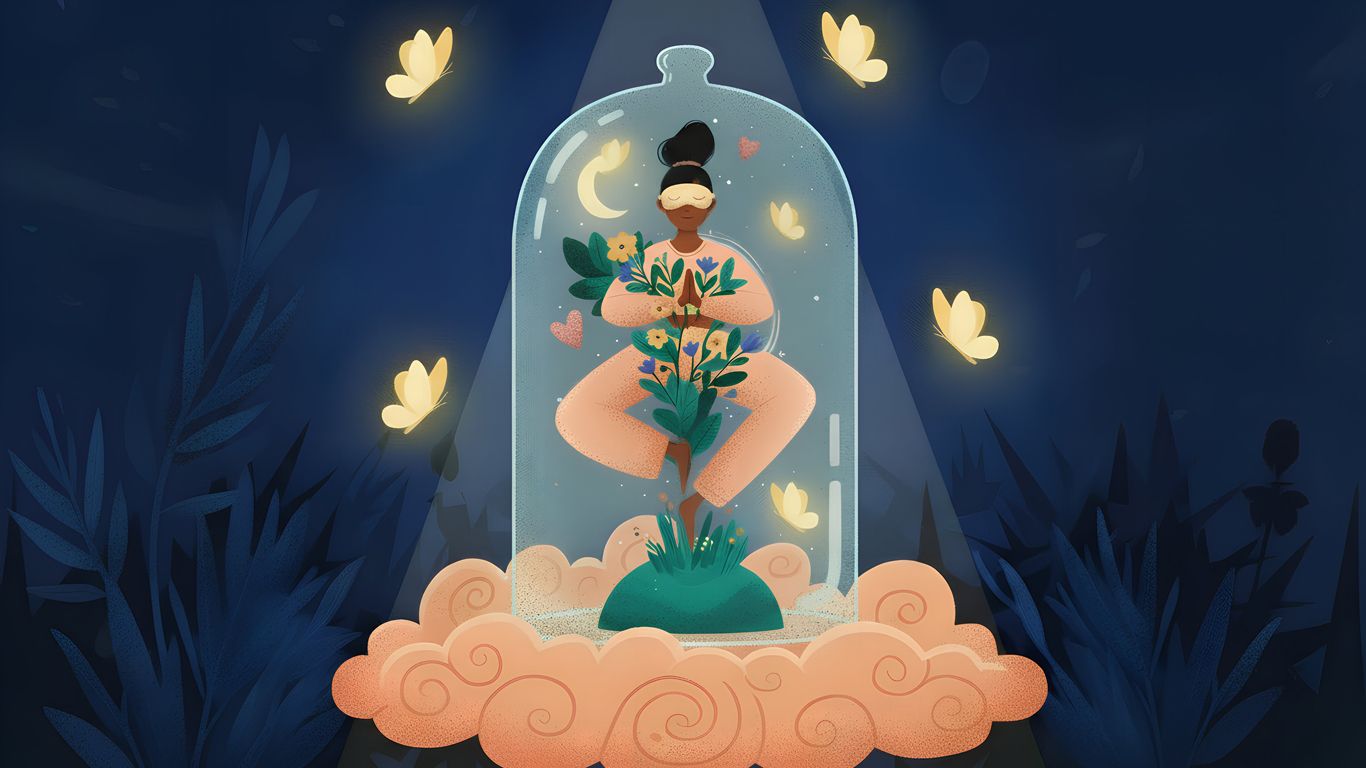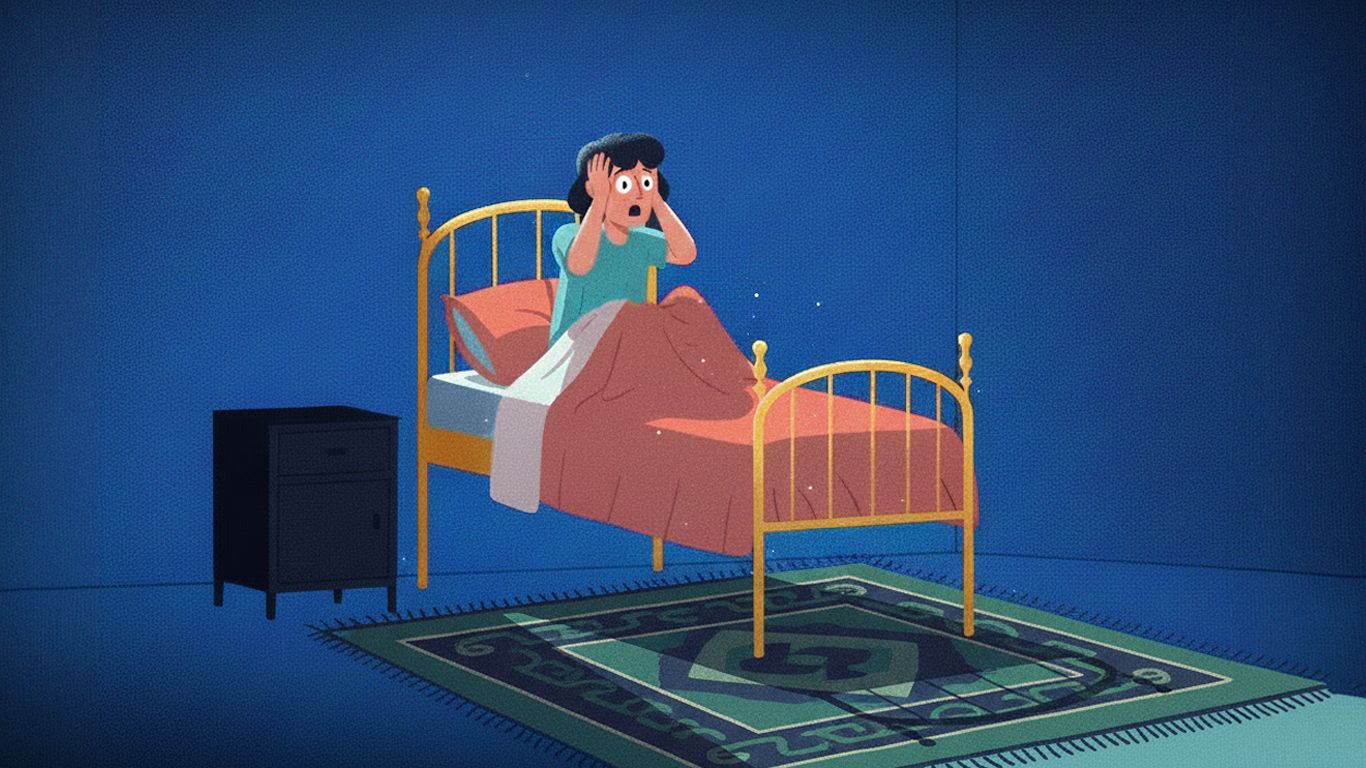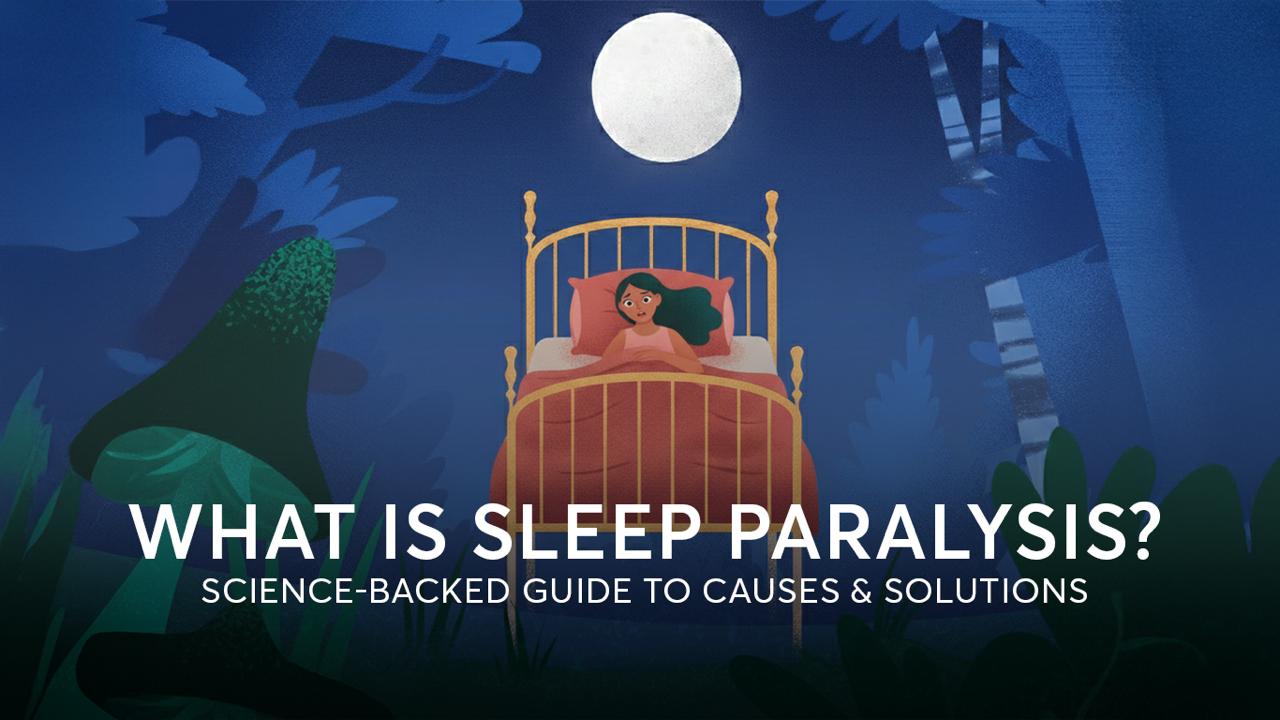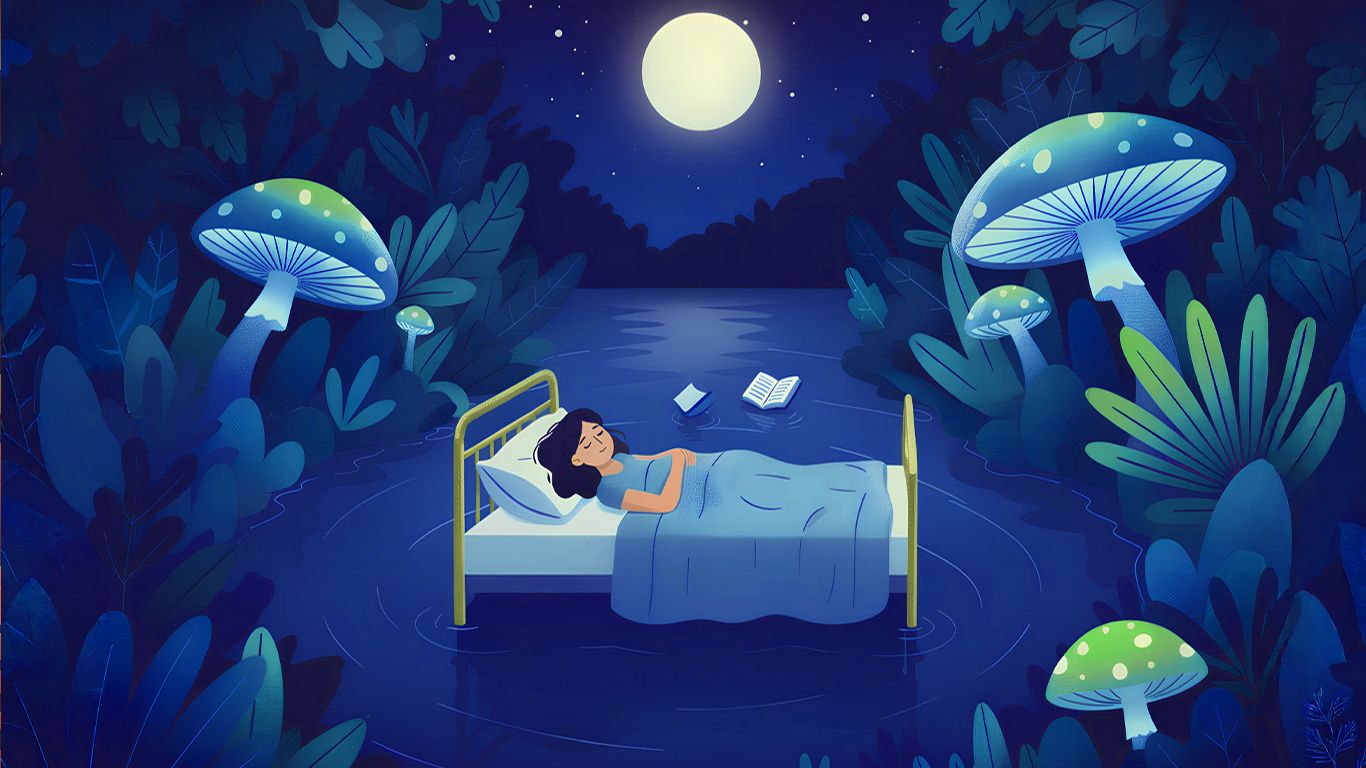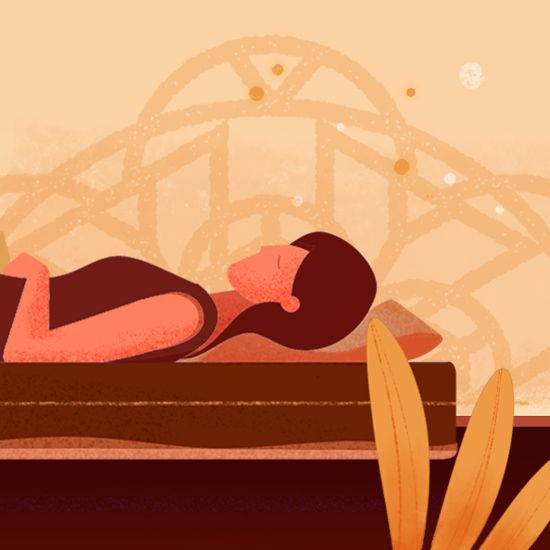
Is Anxiety Affecting Your Sleep?
Do you start to feel anxious once you’re in bed and trying to fall asleep? You’re not the only one. It’s not unusual to reflect on the previous day or to worry about the day ahead.
Anxiety is normal, but it can also be severe and problematic, preventing you from getting a good night of sleep. Taking proactive steps to manage anxiety will help you to start sleeping better in no time.
What is Anxiety?
Anxiety is a feeling of unease and worry. While it’s normal to worry in a stressful situation, some people experience long-term distress, which is classed as an anxiety disorder.
Here, fear becomes overwhelming in everyday situations. The worry is constant and occurs nearly every day for six months or longer.
Anxiety is one of the most common mental health problems, with around 19.1% of US adults affected in the past year. Anxiety levels are influenced by gender, personality, life experiences, and coping strategies.
It’s possible to be affected by anxiety from as early as 11 years old. Symptoms can range from uncomfortable to debilitating, affecting a person’s daily life.
What Does Anxiety Feel Like?
Anxiety disorders affect people physically and emotionally. It may cause you to have a constant feeling of being on edge and feeling extremely nervous.
This can affect your mood and concentration levels, which leads to unease and even irritability. Fear levels can become overwhelming, and you may constantly think something bad will happen to you.
Anxiety disorders affect the body physically by causing rapid breathing, tense muscles, trembling, sweating, a racing heartbeat, an upset stomach, and extreme tiredness.
When you have an anxiety disorder, you might avoid certain situations that trigger worry. Although this might feel like it’s the right option at the time, it does not resolve the issue. It can start to affect personal and professional life.
Anxiety disorders are also often seen in those with mental health conditions such as depression.
Studies by the Anxiety and Depression Association of America (ADAA) show that nearly 50% of those with an anxiety disorder also have depression, and only 36.9% of those suffering seek treatment.
What Are the Different Types of Anxiety Disorders?
There are multiple different types of anxiety disorders. These include:
Panic Disorder
Panic disorder is when you experience regular episodes of intense, sudden fear that leads to a panic attack. While having a panic attack, you may experience breathlessness, a racing heart, chest pain, and break out in a sweat.
These panic attacks can happen unexpectedly or repeatedly. When living with panic disorder, you may start to avoid certain places or situations that set off your panic attacks.
Although panic attacks are scary, they generally won’t cause you any physical harm. They tend to pass after 5 - 20 minutes.
Social Anxiety Disorder
This is also known as social phobia and causes extreme self-consciousness and worry in normal social situations. You feel embarrassed and often think that others are judging you.
Over time, your ability to meet new people and go to work can be affected. This can lead to avoiding situations where you know certain people will be. Physical symptoms can include stomach sickness, sweating, blushing, a rapid heart rate, and avoiding eye contact.
Generalized Anxiety Disorder (GAD)
With GAD, you have overwhelming and unrealistic worries about everyday things. While it’s normal to worry occasionally, you may have a generalized anxiety disorder if these worries become uncontrollable and you feel worried every day for months on end.
Other symptoms include irritability, a sense of dread, and difficulty focusing. Physical symptoms can include headaches, stomach pain, dizziness, a dry mouth, and heart palpitations.
Specific Phobias
These are intense fears related to a specific situation or object, such as flying, heights, spiders, or crowded places. If you have a specific phobia, this can lead to physical distress and going to any length to avoid your fear.
Everyone experiences different symptoms, but common ones include sweating, a tight chest, difficulty breathing, and a faster heart rate.
Post Traumatic Stress Disorder (PTSD)
This condition is caused after experiencing a disturbing or painful situation, such as coming home from war or being abused. PTSD often causes the person to relive stressful events and constantly feel on edge.
With PTSD, the person may feel a lack of control which can lead to symptoms of significant distress and even psychiatric disorders. Studies have shown that 30% to 40% of veterans suffer hallucinations and/or delusions.
Certain noises or events can bring about a negative feelings; anger, sadness, and fear.
Obsessive Compulsive Disorder (OCD)
A person with OCD has obsessive thoughts and compulsive behaviors, causing them to feel anxious. These compulsions can start to affect everyday life.
Common OCD obsessions include:
- Hand washing.
- Repeated cleaning of the same area.
- Arranging items in a particular way.
- Compulsive counting.
- Checking appliances are off.
OCD thoughts generally can’t be controlled, and the person will spend hours a day thinking about them. Performing an obsessive behavior can briefly make the person less anxious, but the cycle will continue.
Separation Anxiety
This type of anxiety is when you feel intense fear and panic when someone leaves your field of sight. You may worry that something will happen to you or them when you’re apart.
Separation anxiety disorder happens more often in children, who usually grow out of it but can also affect adults. Common symptoms of a separation anxiety disorder include excessive, recurrent distress when separated from a loved one.
The person might also worry about a loved one getting lost, being kidnapped, or them getting hurt from illness or a disaster. These constant feelings of worry can also lead to stomach aches, headaches, or even panic attacks.
Agoraphobia
Agoraphobia is the fear and avoidance of situations that make you feel embarrassed, trapped, or helpless. This type of anxiety disorder is diagnosed if you experience these symptoms for six months or longer.
The worry about certain situations can lead to the person stopping going out altogether or needing someone to be with them at all times. Some common situations people with agoraphobia will avoid include:
- Going outside of the house
- Being in enclosed spaces
- Using public transport
- Standing in a queue or a crowd of people
Selective Mutism
This commonly affects kids who decide they will not speak in certain situations, such as in school or with certain people. Generally, they can speak in situations where they feel comfortable and secure.
Over 90% ofchildren with selective mutism also suffer from a social anxiety disorder. Every child manifests their anxiety differently, with some being able to whisper a few words and others just standing frozen in fear.
Why Do People get Anxiety Disorders?
Experts believe that multiple factors contribute to why some people suffer from anxiety disorders. Common causes include:
- Genetics. Anxiety disorders are often caused by your genetics and can run in families.
- Brain chemistry. Faulty brain circuitry that controls fear and emotions has been linked to anxiety disorders.
- Medical conditions. Anxiety disorders have been known to cause similar symptoms to thyroid, heart, and lung conditions.
- Life events. The type of environmental stress that you’ve been exposed to, such as the death of a loved one, abuse, an attack, and neglect, can lead to an anxiety disorder.
- Drug misuse. Anxiety disorders are often seen in those addicted to alcohol or substances.
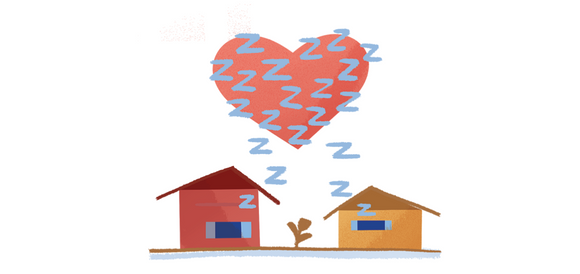

When Is Anxiety a Problem?
Anxiety is a normal human emotion. Feeling nervous and anxious in certain situations is a part of life, like meeting new people, giving a public talk, or taking a test.
Anxiety can be motivating, but it can also become problematic and interfere with how you live and enjoy life.
If anxiety overwhelms you and impacts your daily life, you could have an anxiety disorder.Symptoms include:
- Regular, frequent feelings of worry, restlessness, and nervousness
- A sense of impending doom or danger
- Physical symptoms, like sweating, increased heart rate, trembling, and upset stomach.
- Difficulty concentrating and not worrying
- Difficulty sleeping
Anxiety disorders are treatable. When these symptoms become overwhelming, you should see your doctor. Good management of your mental health will help you sleep better.
How Long Does Anxiety Last
How long you suffer from anxiety will be variable and depends on your unique circumstances and your anxiety. Some people experience short bouts of anxiety due to a specific life event.
However, if you’ve developed an anxiety disorder, such as a panic disorder or generalized anxiety disorder, this can last for some time.
If your anxiety symptoms have started to affect your everyday life, it will likely not just pass until you seek treatment. Ongoing anxiety includes symptoms like racing thoughts, an inability to focus, and sleep problems such as nocturnal panic attacks.
If these symptoms affect you for weeks and months, this is classified as an anxiety disorder. Talk with your GP to get a diagnosis, and they will recommend the best treatment plan for you.
How Are Anxiety and Sleep Related?
Sleep disturbances, particularly insomnia, are common symptoms of anxiety disorders. When you constantly worry, these worries can get taken to bed and cause difficulty falling asleep.
Intense worry is a key factor in insomnia, making it more likely you’ll suffer sleep disruption. Those suffering from PTSD (Post Traumatic Stress) and OCD (Obsessive Compulsive Disorder) are also more likely to experience sleep disorders, with many reporting struggling with insomnia on a regular basis.
General anxiety may lead to sleep anxiety, where you stress about not being able to fall asleep. These negative thoughts around bedtime can lead to sleep disruption and tiredness the next day.
Even if you fall asleep when you have anxiety, you may find that you wake up and find it hard to get back to sleep again with anxious thoughts racing. This disturbed sleep reduces the quality and quantity of sleep.
Anxiety disorders have also been linked to disruptions in sleep cycles. This is because anxiety can affect REM (Rapid Eye Movement) sleep and lead to disturbing dreams, which increases the likelihood of disrupted sleep.
What is Sleep Anxiety?
Sleep anxiety is an intense worry or fear about falling asleep. In extreme cases, you can have a fear or phobia about sleep, known as somniphobia.
This is when you think something bad will happen to you while asleep. Or that you need to stay alert to protect yourself.
Mental health conditions and sleep disorders often go together. If you suffer from anxiety, you may find it hard to fall asleep.
And if you have a sleep disorder, you may feel anxious at bedtime, which causes sleep problems and leads to sleep deprivation.
Who Gets Sleep Anxiety?
Sleep anxiety can affect people of all ages, including children, teens, and adults. However, anxiety and sleep are often more common if you have one of these sleep disorders:
- Insomnia
- Sleep apnea
- Narcolepsy
- Sleepwalking
- Restless leg syndrome
Those suffering from a mental health condition are also susceptible to sleep anxiety. Common conditions associated with anxiety and sleep include:
- Depression
- Schizophrenia
- Bipolar
- Panic disorder
- Anxiety disorders
- Alcoholism
- Drug misuse
- PTSD (Post Traumatic Stress Disorder)


How Common is Sleep Anxiety?
Sleep anxiety is extremely common, with around 40% of Americans stating that insomnia is the cause of this fear. Studies have shown that people with anxiety and mental health condition are also extremely likely to suffer sleep deprivation from sleep anxiety.
What Are the Causes of Sleep Anxiety?
Anxiety is a common factor in everyday life. In dangerous situations, we’re programmed to feel worried so that we escape.
The stress of these situations causes our bodies to eject hormones that heighten our alertness so we can get away fast. However, chronic anxiety and stress can spill over into other areas of life and cause harm.
At nighttime, extremely high levels of this stress hormone can reduce your ability to relax. This can lead to sleep anxiety and make it hard to fall asleep and stay asleep.
Here are a few reasons why your anxiety may be worse at night:
Extreme Fear
Many people experience heightened levels of sadness, worry, and extreme fear at night. Negative thought patterns can take control when you’re left alone in silence and darkness. This extra stress can push adrenalin levels sky-high, making it harder to fall asleep.
Fixated on Daytime Worries
Sleep anxiety disorder is often caused by over-focusing on what has happened earlier in the day, such as a stressful event. This constant state of worry keeps the body in danger mode, which is fight or flight mode. Staying in this mode leads to nighttime anxiety and poor sleep.
Rapid Thought Patterns
Nighttime anxiety can lead to racing thoughts that are hard to calm down. When these thoughts are left to go on, anxiety levels rise, making it hard to go to sleep and stay asleep.
Chronic Insomnia
Unfortunately, anxiety and insomnia are linked, meaning if you have one, you’ll likely develop the other. If you are anxious in the evening, this will lead to a poor sleep pattern. If you have chronic insomnia, you’re likely to become more anxious.
How Anxiety Affects Sleep
Trouble sleeping is a common characteristic of anxiety disorders. Even if you don’t have enough symptoms to be diagnosed, anxiety can keep you up at night.
Anxiety at night can feel like your mind is racing, and you can’t switch it off. Worries tend to worsen when you’re in bed with no other distractions.
Studies have long pointed out that anxiety is associated with poor sleep. We also know that the two go together in a vicious cycle: anxiety makes sleeping more difficult, and inadequate sleep triggers or worsens anxiety.
What Are the Symptoms of Sleep Anxiety?
Sleep anxiety may lead to different behavioral changes, such as:
- Irritability
- Nervousness
- Restlessness
- Inability to focus
- Feelings of overwhelm
- Sense of impending doom
You may also experience certain physical symptoms such as:
- Sweating
- Trembling
- Rapid heart rate
- Shallow breathing
- A tense body
- Digestive upset
A panic attack is waking another common symptom of sleep anxiety. When this happens, you may wake up with an intense feeling of fear, and it’ll take time to calm yourself down again.
How Do You Diagnose Sleep Anxiety Disorder?
It’s important to talk with your healthcare provider if you think you have sleep anxiety. They will evaluate your symptoms and look at your medical history. Next, they’ll ask you questions regarding your sleep hygiene, like:
- What activities are included in your nighttime routine?
- Do you drink or eat anything before bed?
- Are you anxious before bed or at other times?
- Do you wake up often after going to sleep?
- How long does it take for you to fall asleep?
Answer the questions as honestly as you can. If you struggle to remember, start writing in a sleep diary to record your symptoms.
Are There Tests to Help Confirm Sleep Anxiety?
If you struggle with anxiety and sleep, your GP may recommend you do a sleep study or polysomnography. This is where you sleep overnight in a lab to have tests done to confirm whether you have a sleep disorder.
Many things will be studied, including:
- Breathing
- Sleep stages
- Body positioning
- Eye movements
- Blood oxygen levels
- Brain electrical activity
- Heart rate and rhythm
- Body movements
- Any noises you make while sleeping
How is Sleep Anxiety Treated?
Depending on the type and severity of sleep anxiety, there are many ways to treat the condition, such as:
- Mindfulness. One of the best ways to get rid of sleep anxiety is to change how you think about certain situations. If thoughts run through your head at night like “I’m not good enough” or “I should have seen this coming,” mindfulness helps you stop thinking negatively and start to look at yourself and what has happened with increased kindness.
- Medication prescribed by your GP. Some sleep medicine can help to reduce anxiety and insomnia, helping you to get a better night’s rest. Medication can also help relieve PTSD symptoms and mental health problems. Always talk to your GP before taking any new medication.
- Cognitive behavioral therapy (CBT). An effective anxiety treatment is cognitive behavioral therapy with a professional therapist. Sessions include guiding patients to build better, positive thought pathways that can help reduce anxiety. Three types of CBT include thought records, modern exposure therapy, and interpersonal therapy.
- Improvements to your sleep hygiene (better sleep health). Sleeping problems often stem from having a poor nighttime routine. If you’re going to bed at different times each night, this can create havoc for your circadian rhythm, which is your internal process that naturally regulates the sleep-wake cycle. Aim to go to bed at the same time and practice relaxation techniques to wind down successfully.
What Happens When Anxiety Affects Sleep?
When you get less sleep because of anxiety, this can lead to extreme tiredness that affects everyday life. Sleep anxiety will affect everyone differently, but some common effects include:
- Low mood and irritability
- Poor performance at school or work
- Decreased ability to focus and concentrate on tasks
- Reduces reaction times
- Four times more likely to develop depression
- An increased risk of health problems such as stroke, diabetes, obesity, high blood pressure, and heart conditions


Tips to Sleep Better With Anxiety
You don’t have to let anxiety control your days and nights. The first thing you should do is see your doctor. If you meet the criteria for a diagnosis, treating the underlying anxiety disorder will improve your sleep.
With or without a diagnosis, try these tips for anxiety relief and better sleep:
Get active during the day
Exercise is relaxing. It will soothe your mind and relax your body. Make daily exercise a priority, and you’ll feel more tired and less anxious at night.
Manage worries with meditation
You should also prioritize meditation, which researchers overwhelmingly findreduces anxiety and stress. Choose from several different guided meditations on BetterSleep to help manage anxiety daily.
Distract your mind
Anxiety at bedtime occurs because your mind is free to worry. Distractions can be a big help. Read an absorbing book in bed or listen to some of the soothing bedtime stories available on BetterSleep
Ground your body
Grounding is a useful technique for managing anxiety immediately. When you feel anxious lying in bed at night, focus on your physical sensations. Identify what you feel, any smells and sounds.
Practice good sleep hygiene
Good sleep hygiene includes having a set bedtime routine and good sleep habits to help you get better sleep and minimize sleep disturbances. Having a quality sleep routine makes your mind less likely to focus on worries and stress about falling asleep.
A few ways to improve sleep hygiene include:
- Go to bed at the same time
- Engage in relaxation activities
- Drink a calming chamomile tea
- Limit blue light exposure from your phone
- Soak in a warm bath
- Listen to shooting music
- Limit power naps during the day
- Keep your bedroom cool and dark
- No alcohol or caffeine near bedtime
Set aside time to worry
It’s often a reflection on the day or thinking about tomorrow that keeps us up at night, so set a specific time for these things. A couple of hours before bed, give yourself 15 or 30 minutes to reflect on the day, problem-solve, and make a to-do list or plan of action for tomorrow.
Set aside time for relaxation
If you struggle with anxiety and sleep, it’s imperative to prioritize relaxation techniques. Create a routine that relaxes you and prepares your body and mind to sleep.
This might mean ditching the crime series on Netflix in favor of reading a book. Or taking time to meditate while listening to calming music.
Avoid stressful activities before bed
If the brain is stressed and engaged, it’ll find it hard to wind down into sleep mode. Just like you prepare yourself for certain situations, the brain needs to be prepared to go to sleep.
Your goal is to minimize the racing thoughts in your head, so you can become calmer and more positive. This means avoiding watching the news, working late, and chatting on social media so you can fall asleep feeling calm and contented.
Write down your worries
Sleep anxiety often stems from having too many racing worries. Writing them down on paper can feel like a release and help you work out a game plan, so you feel more positive.
Write down your anxious feelings, or just write a journal entry each day. Journalling has been proven in studies to help people fall asleep more quickly.
Get out of bed if you can’t sleep
If you lie awake at night unable to fall asleep for longer than 20 minutes, it’s advised to get out of bed to reset yourself. Try leaving your bedroom to do another activity, such as reading a book.
This is called stimulus control and helps to mentally reset you. This method has been found to reduce the time it takes to fall asleep again.
Minimize electronic device time
The blue light from phones, laptops, and screens suppresses melatonin by tricking the brain into thinking it’s daytime. Put your electronic devices away at least one hour before bedtime to stop this from happening.
Create a sleep-friendly environment
The best sleep environment should be cool (between 60 - 67 degrees Fahrenheit), quiet and dark. Use a dimmable light or amber glow bulb to signal your brain to wind down.
Additionally, use white noise to block out background sounds if your environment is noisy. Making your bedroom a comfortable oasis will increase your chances of falling asleep more easily.
Invest in a comfortable mattress
Sleeping on an old, uncomfortable mattress may cause pain in your body, causing you to toss and turn. This can stop you from falling asleep and staying asleep, leading to sleep deprivation.
A quality mattress and pillow support your back and neck where needed, allowing you to feel comfortable so you can drift off to sleep for a good night’s rest.
Try a weighted blanket
Weighted blankets weigh between 5 and 30 pounds and are known for their calming effects. The extra weight is said to mimic the feeling of a hug, helping to increase serotonin and melatonin while decreasing cortisol, which is linked to stress.
Get rid of your clock
Looking at the clock every few minutes when you can’t sleep will only heighten anxiety levels. Get rid of your clock, or keep it out of the bedroom altogether.
Conclusion
Anxiety is a problem for many people, and it can wreck multiple areas of daily life, including work performance, social interactions, and the ability to get a good night’s sleep. Talk to someone about what’s going on, including friends, family, or your local health professional.
Mental health disorders such as anxiety and sleep problems are closely associated; having one can make the other worse. But the good news is that they are both treatable.
Enjoy more restful nights again by improving sleep hygiene with help from the BetterSleep app and if symptoms persist, ask your healthcare provider for a treatment plan.
